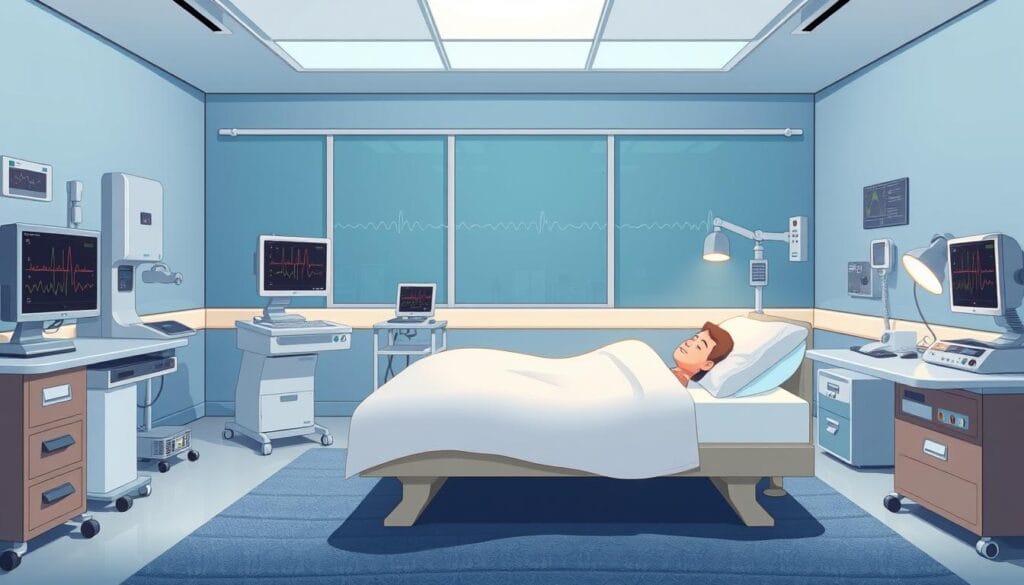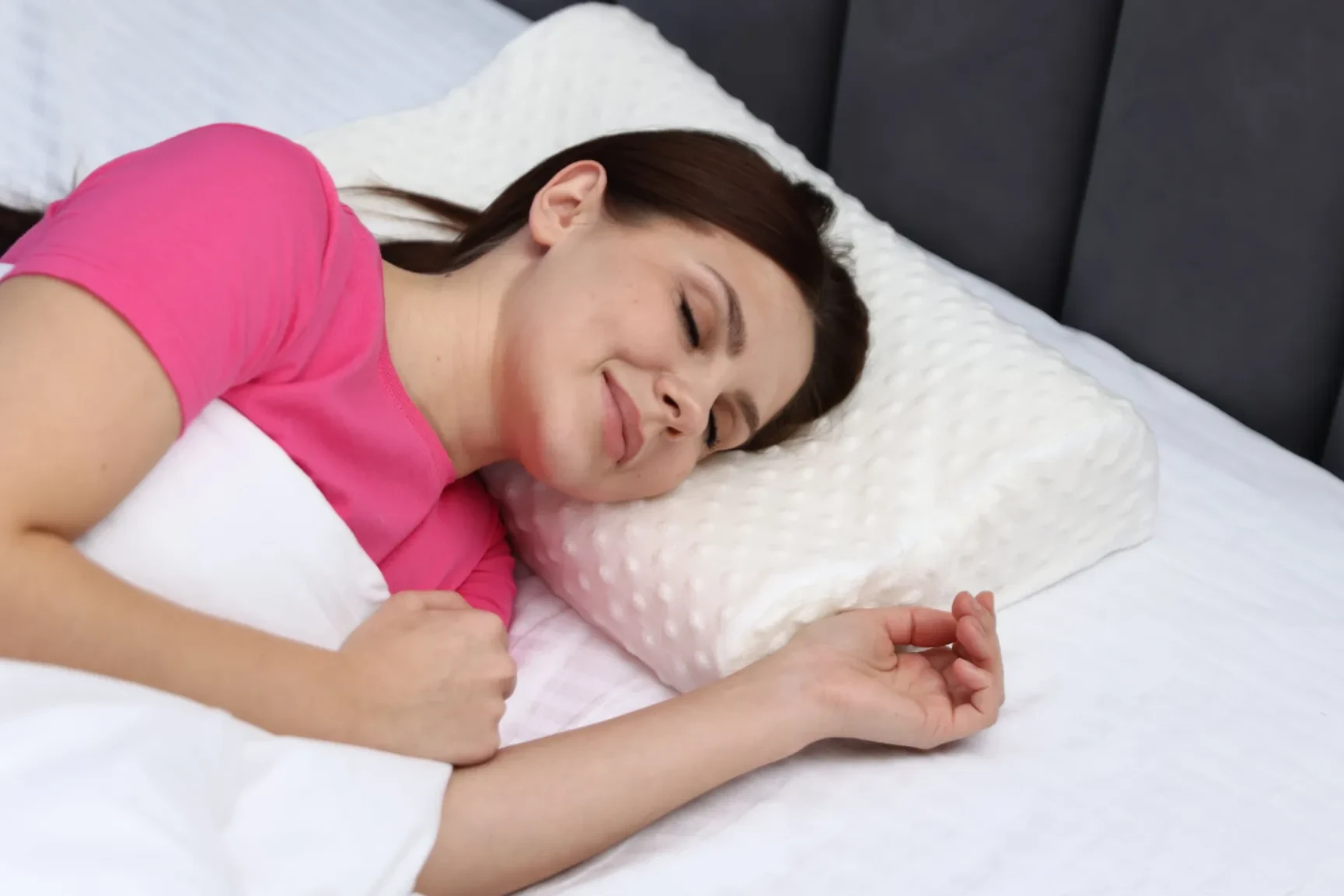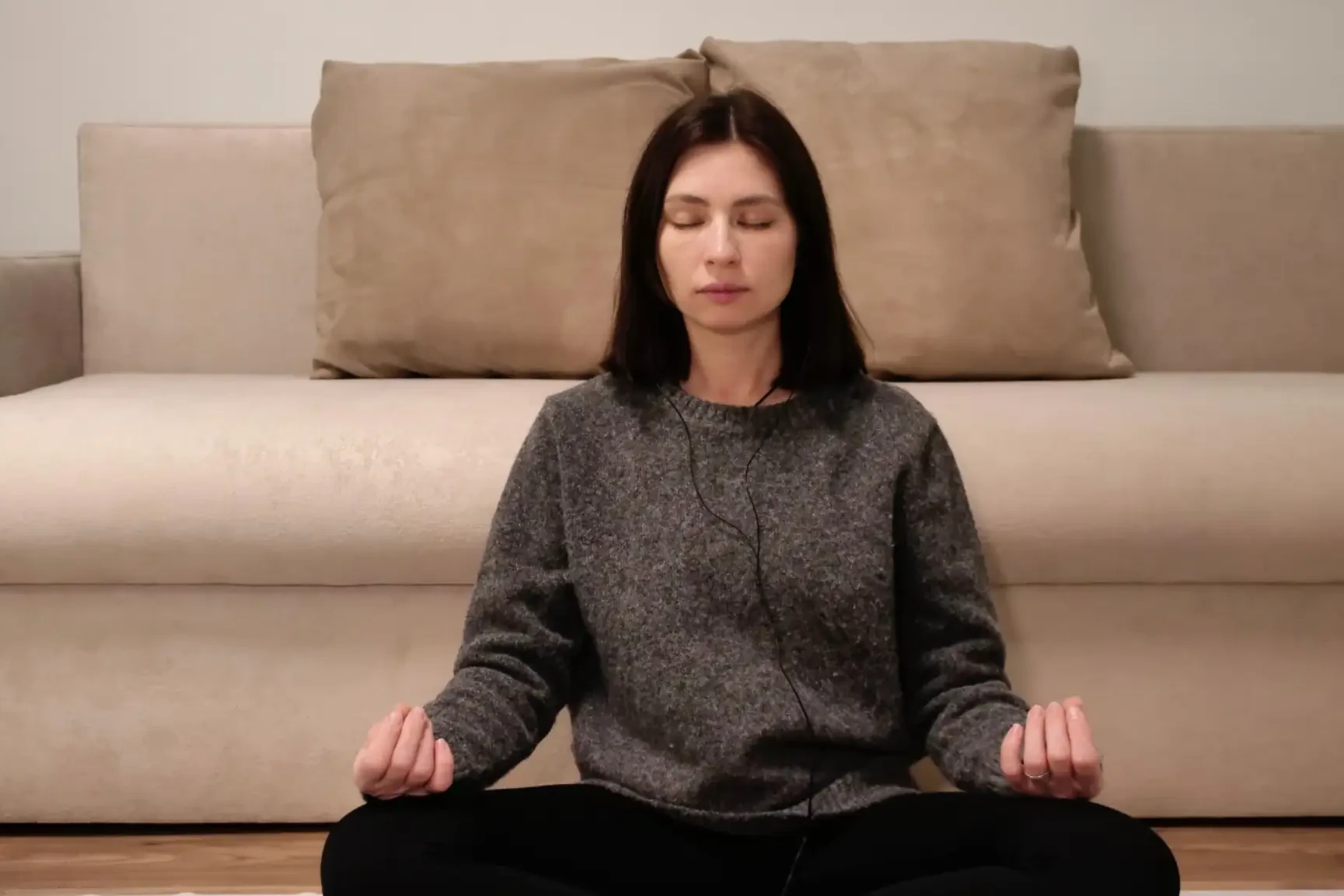Do you really need 8 hours of sleep every night? Many believe this is a strict rule for good health, but is it true for everyone?
People often feel confused or frustrated when they can’t meet this “8 hour sleep rule”. Poor sleep or misinformation can make life harder, especially for busy adults juggling work, family, and health.
In this blog, we will explain why the 8 hour sleep rule is not the same for everyone. We will explore how much sleep you really need and what matters most for your health. Understanding these facts can help you improve your sleep and overall well-being.
Table of Contents
ToggleWhere Did the 8-Hour Rule Come From?
The idea that everyone needs exactly 8 hours of sleep is very popular. But where did it come from?
Let’s look at the history and what science says.
Origins of the 8 Hour Sleep Recommendation
In the late 1800s, Robert Owen suggested the “8-8-8” rule. It said to work 8 hours, play 8 hours, and rest 8 hours a day.
The 8 hour sleep rule was popularized during the Industrial Revolution.
- Factory workers were expected to work 8 hours and sleep 8 hours, with 8 hours for other activities.
- This schedule was more about work than health.
- It became a simple rule that spread widely.
- It ignored individual sleep needs.
- It shaped modern society’s view on sleep needs.
This framework was more about fitting work and life schedules than true health needs. Yet, the 8 hour sleep rule stuck around for generations.
Cultural Perspectives on Sleep
Different cultures view sleep differently. A 2020 Sleep Medicine study showed some societies value polyphasic sleep (multiple short sleeps) over one long sleep.
- Mediterranean cultures often include siestas.
- Some Asian cultures prioritize short naps for energy.
- Western focus on 8 hours sleep rule is not universal.
These differences show sleep is personal, not universal.
What Science Actually Says?
Science shows that sleep needs vary from person to person. A study in Sleep journal found that adults need 7–9 hours of sleep, but some function well with less, while others need more.
- The National Sleep Foundation says 7–9 hours is a general guide.
- Some people thrive for 6 hours, others need 10.
- Genetics and lifestyle play a big role.
Let’s dive into why 8 hour sleep rule doesn’t work for everyone.

How Much Sleep Do You Need? Individual Variability in Sleep Needs
Everyone’s sleep needs are different. Factors like age, genetics, and lifestyle influence how much sleep is best for you. You shouldn’t feel bad if you don’t match the 8 hour sleep rule perfectly.
Sleep Needs by Age and Life Stage
| Age Group | Recommended Sleep Duration |
| Adults (18-64) | 7 to 9 hours |
| Older Adults (65+) | 7 to 8 hours |
| Teenagers | 8 to 10 hours |
| Children | 9 to 12 hours |
- Sleep needs decrease slightly with age.
- Younger people generally need more sleep to support growth and brain development.
- Adults in busy phases of life may need to adjust based on fatigue and health.
Again, the 8 hour sleep rule is just a rough estimate, not a hard requirement. Your age sets a starting point, but other factors matter too. Knowing your life stage helps guide your sleep schedule.
Lifestyle Influences on Sleep
Your daily life affects sleep. A 2017 Sleep Medicine study found stress and activity levels change sleep needs.
- Busy professionals may need more rest.
- Athletes require extra sleep for recovery.
- Caregivers often face disrupted sleep.
So sticking to 8 hour sleep rule might not be practical for everyone.
Genetic Factors in Sleep Patterns
Genes can make you a “short sleeper” or “long sleeper.” A study found some people naturally need less sleep due to the individual variation in genetic makeup.
- About 1% of people have a short-sleep gene.
- Others need 9+ hours to feel rested.
- Your genes shape your optimal sleep duration.
Lifestyle and genes mean your “optimal sleep duration” may not be the same as others.
Quality vs. Quantity: What Matters More?
Sleep is not just about hours or following the 8 hour sleep rule. The quality of sleep is often more important than how long you sleep.
Sleep Cycles and Their Importance
Sleep happens in 90-minute cycles, including light, deep, and REM stages. A 2018 Sleep study found 4–6 cycles per night is ideal.
- Light sleep prepares your body for rest.
- Deep sleep repairs muscles and boosts energy.
- REM sleep supports memory, learning, and mood.
Missing cycles can make you feel tired, even if you follow 8 hour sleep rule. Better sleep quality leads to better health, even if you sleep fewer hours.
Read → Finding The Ideal Room Temperature For Sleep

It’s important to tackle sleep disorders and focus on quality sleep. Knowing the effects of sleep loss helps us improve our sleep. This boosts our health and happiness.
Alternatives to the 8 Hour Sleep Rule
| Alternative | Description | Considerations | Best For |
| Power Naps | Short naps taken during the day, typically 20–30 minutes. |
| Busy professionals needing mid-day recharge |
| Polyphasic Sleep | Multiple short sleep sessions across 24 hours. |
| People with non-traditional lifestyles |
| Customized Sleep Schedules | Sleep schedules based on individual needs and lifestyle. |
| Anyone seeking optimal personal sleep pattern |

Finding the right sleep balance is key. It’s about quality and quantity, tailored to you. By trying out different sleep methods, you can improve your sleep habits and health.
Myths That Could Be Ruining Your Sleep
Many sleep myths cause confusion and prevent healthy rest.
Busted: Alcohol as a Sleep Aid
- Alcohol may make you fall asleep faster.
- But it reduces REM sleep and causes frequent awakenings.
- Leads to poor sleep quality and next-day tiredness.
Alcohol is not a true sleep aid. This worsens sleep even if you meet the 8 hour sleep rule.
Napping Myths
- Short naps (20-30 minutes) can boost alertness.
- Long naps may disrupt nighttime sleep.
- Naps are not bad if timed right and do not replace nighttime sleep.
Well-timed naps can replace gaps in the 8 hour sleep rule, but overdoing it may harm your routine.
Sleep Tracker Anxiety
- Many use sleep tracking devices hoping for better sleep.
- These can cause stress if you obsess over data.
- Sleep tracking devices are not always accurate.
- Focus on how you feel rather than just numbers.
Even following the 8 hour sleep rule won’t help if sleep quality is poor or disrupted.
When Poor Sleep Becomes a Health Risk?
Not getting enough good sleep can affect your body and mind in many ways.
Short-term Effects You Can Feel
Even one bad night can hurt. A 2023 Sleep study showed poor sleep impairs focus and mood.
- You feel irritable or forgetful.
- Reaction times are slow, risking accidents.
- Energy drops, making tasks harder.
These effects hit fast and disrupt your day.
Long-Term Health Consequences
Chronic sleep loss raises serious risks.
- Increased risk of heart disease, diabetes, and obesity.
- Higher chances of developing neurological problems like memory loss.
- Sleep deprivation effects include weakened brain function.
Poor sleep can seriously impact your health over time.
Psychological Effects of Sleep Loss
The neurological impact of poor sleep affects mental health. A 2021 Neurology study found sleep loss increases anxiety and depression.
- Stress worsens with poor sleep.
- Memory and decisions suffer.
- Mood swings become common.
Sleep is key for a healthy mind.
How Tech and Screens, and Social Media Affect Sleep Cycle?
In today’s digital world, technology affects our sleep in ways many don’t realize. Even if you try to follow the 8 hour sleep rule, late-night scrolling makes it harder to fall asleep.
How Blue Light Disrupts Melatonin?
- Blue light from phones, tablets, and computers stops melatonin production.
- Melatonin is a hormone that helps you fall asleep.
- Exposure before bedtime delays sleep onset and reduces quality.
Reducing blue light helps maintain your circadian rhythm.
Digital Detox Techniques
- Set a “no screens” time at least one hour before bed.
- Use night mode or blue light filters on devices.
- Replace screen time with relaxing activities like reading or meditation.
Digital detox supports better sleep health.
Also Read → The Impact of Smartphone Use on Sleep Patterns
Tips to Improve Sleep Architecture
- Maintain a consistent sleep schedule every day.
- Avoid caffeine or heavy meals close to bedtime.
- Create a quiet, dark, and cool sleep environment.
- Practice good sleep hygiene, such as turning off screens before bed.
- Avoid alcohol which can disrupt REM and deep sleep.
Improving how you sleep can be more helpful than just sleeping longer.
Know More → Relationship Between Caffeine and Sleep Quality
When Should You See a Sleep Specialist?
If you’re following the 8 hour sleep rule and still feel tired, something deeper may be wrong. Some sleep problems need expert attention. Knowing when to consult a neurologist or sleep doctor is important.
Common Sleep Disorders
Here are some common sleep disorders you should watch
- Insomnia: difficulty falling or staying asleep.
- Sleep apnea: pauses in breathing during sleep.
- Restless legs syndrome: uncomfortable leg sensations that interrupt sleep.
These conditions need diagnosis and treatment.
If you are struggling, let Dr. Chandril Chugh help you find your best sleep routine today → Book a consultation for expert, personalized care.

Personalized Sleep is More Important Than Following Myths
The 8 hour sleep rule is a helpful guide but not a strict requirement for everyone. Your sleep needs depend on many factors including age, lifestyle, and genetics.
Focusing on sleep quality vs sleep quantity is vital. Good sleep supports your brain, body, and mental health. Understanding your unique needs is better than chasing a hour sleep rule blindly.
If you are still struggling with sleep, consult a neurologist or sleep expert. Together, you can find your optimal sleep duration and improve your sleep habits for a healthier life.
FAQ
What is the 8-hour sleep rule?
The 8-hour sleep rule is a common guideline. But, it doesn’t fit everyone. Sleep needs change with age, lifestyle, and genes. Studies now say sleep quality is more important than how long you sleep.
Where did the 8-hour sleep recommendation come from?
Scientists found that eight hours of sleep is best for our brains and bodies. But, humans used to sleep in two parts, called biphasic sleep, in the past.
How does sleep quality affect overall health?
Good sleep quality is more important than how long you sleep. Sleep stages are key for rest. To sleep better, keep a regular sleep schedule, make your sleep area comfy, and relax before bed.
How do individual factors influence sleep needs?
Sleep needs change with age and lifestyle. Babies need up to 17 hours, while older adults need less. Work, stress, and exercise also affect sleep. Genes influence our natural sleep patterns.
What are the consequences of sleep deprivation?
Not sleeping enough hurts our brains, mood, and body. It can lead to heart disease, obesity, and diabetes. It also makes us stressed, anxious, and depressed.
Are there alternatives to the 8-hour sleep rule?
Short naps can help us feel better. Some people sleep in short periods all day, but it’s not well studied. Tailoring sleep to fit your life and body type can work better.
What are some common myths and misconceptions about sleep?
Many think everyone needs 8 hours of sleep. But, this isn’t true for everyone. Drinking alcohol before bed doesn’t help sleep. Napping can be good if done right. But, some sleep aids can harm us in the long run.
How does technology affect sleep patterns?
Screens can mess with our sleep by blocking melatonin. Sleep trackers can help but also worry some people. Avoiding screens before bed helps sleep better.
When should someone seek professional help for sleep issues?
If you have trouble sleeping, like insomnia or sleep apnea, get help. Doctors can offer treatments like therapy or machines. Sleep studies can find sleep disorders. Getting help is key if sleep problems affect your life.
About The Author

Medically reviewed by Dr. Chandril Chugh, MD, DM (Neurology)
Board-Certified Neurologist
Dr. Chandril Chugh is a U.S.-trained, board-certified neurologist with expertise in diagnosing and managing neurological disorders, including migraines, epilepsy, Parkinson’s disease, and movement disorders. His clinical focus includes evidence-based neurological care and patient education.
All content is reviewed for medical accuracy and aligned with current neurological guidelines.




